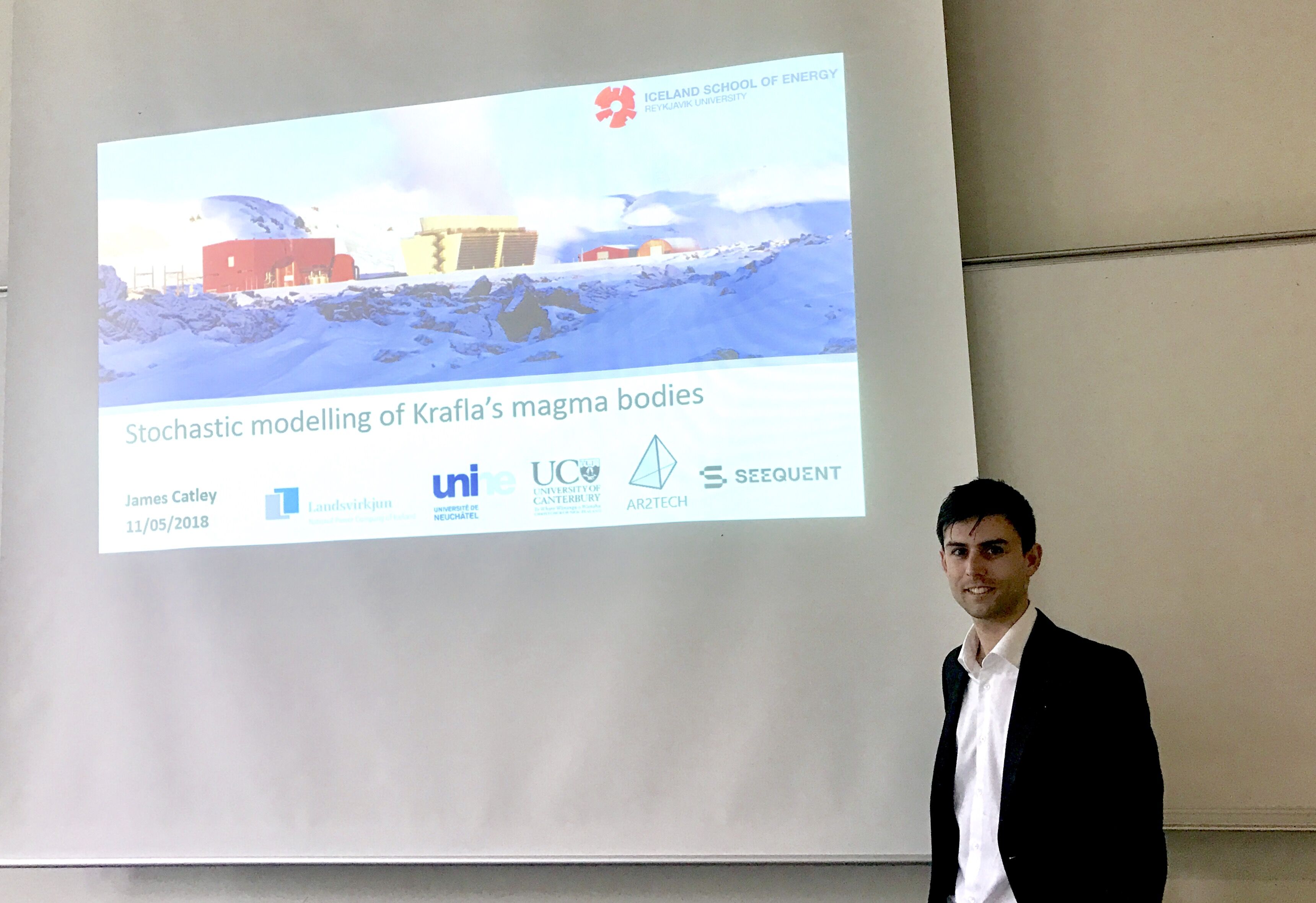MSc Thesis: Stochastic Modelling of Krafla´s Magma Bodies
James Catley successfully defends his master’s thesis
REYKJAVIK, June 7 - MSc in Sustainable Energy Science, James Catley successfully defended his master’s thesis project in the stochastic modelling of Krafla’s magma body. James’ work was supervised by Juliet Newson from Reykjavik University.

Krafla is an area located in the Northeast of Iceland that is known for its volcanic activities and high temperature geothermal system that has been exploited since 1977. Currently, there is a 60 MW geothermal plant situated in the area. As one of the most extensively studied geothermal system in Iceland, James’ research aimed to apply a geostatistical modeling technique that has never been applied before to the system. James’ research objective is to provide a unique insight to Krafla’s geological structure, including two intersections of acidic magma, and eventually generates several conceptual models for the locations and morphology of current magma bodies in the system.
James explained that he first derived training images from these models to form the basis for further stochastic simulation of the magma bodies using the DeeSse multiple point geostatistics algorithm. However, James encountered data limitations during the process and hence, the data was inadequate to train a robust model and resulted in excessive processing times. To solve for this, James conducted six modelling consultation sessions with experts and professionals from various institutions such as Iceland University, HS Orka and University of Alaska, to create various versions of the conceptual model.
James concluded that there is little consensus on the morphology and location of magma bodies, which could be caused by the lack of hard data. Future work surrounding James’ thesis could include increasing the data availability and collection that would help validate models, and using computer tools to model reservoir properties for other geothermal systems. To read more about James’ work, please click on the following link .
Congratulations, James on an excellent thesis!
